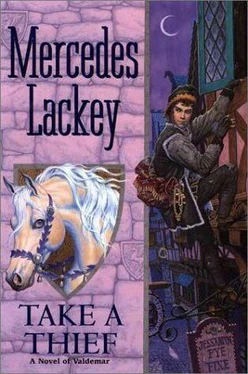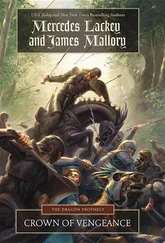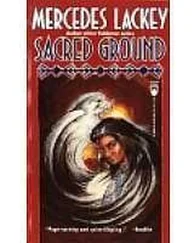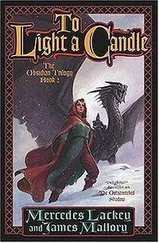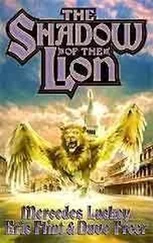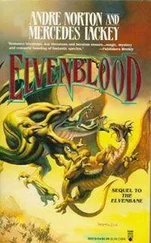Now he went to the alleys, slinking from bit of cover to bit of cover. There was plenty of cover here; permanent rubbish bins where ashes, broken crockery, bits of wood, scraps from food preparation too small or too spoiled for anyone from these houses to consider useful were left for the rubbish collectors. This was where the wood — and possibly some of the foodstuffs — bought by Uncle Londer came from. Skif knew better than to rummage in those bins; they “belonged” to the rubbish collectors who guarded their territories jealously, with curses, kicks, and blows. But the rubbish collectors didn't care who they saw in their alleys so long as he left the bins alone, and they ignored Skif as if he was invisible. Sometimes there were other things left back here as well, usually weeds, bags of dead plants and leaves, sticks and trimmings from gardens. It all made places for a small boy like Skif to hide. These alleys were faced by blank walls that rose well above Skif's head, but not all of those walls were as impervious as they seemed.
He had skipped over three or four social strata now,- he'd known better than to look for a mark among people like Dolly's parents or the small merchants. Such folk feared to lose what they'd built up and were as penurious in their way as his uncle; they didn't share what they had, and when they caught someone trying to get a bit for himself, punished him with fury. No, when Skif decided that he was going to help himself to the bounty of others, he knew he'd need to find someone who had so much that he couldn't keep track of it all, and so many servants that it wasn't possible even for them to do so.
The drawback was that in such a rich household, there were privileges that were jealously guarded, and as he knew very well, even those things that the owner thought were refuse had value. The cook and her staff all had the rights to such things as fat skimmed from the cooking, the burned or otherwise “spoiled” bits, and “broken meats” — which last were cooked leftover items that had been cut into or served from without actually having been on someone's plate. Depending on the household, unless such items were designated to go to the poor, the cook and helpers could sell such items from the back door, or give them to relatives who were less well-provided-for, or a combination of all of these things. “Scrapings” — the leftovers scraped from plates into a slop bucket by the dishwashers — belonged to the dishwashers in some households, or were fed to household animals in others, and again could be sold or carried off, if not fed to animals.
Stale bread and cake were the provenance of the pastry cook, sometimes a different entity from the head cook, who had the same options.
All these leftover items were jealously guarded from the time they became leftovers. But from the time they left the hands of the cooks until the moment that they were brought back to the kitchen, no one was paying any great amount of attention to the quantities on platters in a so-called “great” household.
And that was where Skif had found his little opportunity to exploit the situation.
He noted the first breach in the defenses by the cloud of sweet-scented steam rising over the wall; this was a huge household that had its own laundry. Making sure that he wouldn't be spotted, he kicked off his boots and hid them inside the wall, squeezing them in through a place where he'd found a loose brick. It had occurred to him more than once that he was probably using someone else's hiding place — bricks in well-tended walls like this one didn't just “come loose” by accident. He wouldn't be the least surprised to learn that someone (or several someones) in this great house had once used the place to store small articles purloined in the course of duties, to be retrieved and carried off later.
Now barefooted, he climbed nimbly over the top and into the open laundry yard, full of vats of hot water, bleaches, and soap in which household linens soaked before being pounded by a dozen laundresses, rinsed, and hung up to dry. Between the vats, sheets and towels were strung on lines crisscrossing the yard. The bleaches were so harsh that these vats were kept in the open, and away from the rest of the laundry where the clothing was cleaned, for a careless splash could ruin a colored tunic forever. The steam and the hanging linens gave him cover to get into the room where the livery for the pages was stored once it had been laundered, and on his way through, he grabbed a wet towel out of one of the vats to take with him.
The pages — there were at least twenty of them — went through a dozen sets of livery apiece in a week, for the servant who had charge over them insisted on absolute cleanliness.
This room — which they called a “closet” although it was as big as the Hollybush's common room — held only shelves that were stacked with tabbards, tunics, and trews for every possible size of boy. They didn't wear boots or shoes, perhaps because they were so young that they would probably outgrow boots or shoes too quickly; instead, they wore colored stockings with leather bottoms, which could fit a wide variety of feet. Hence, Skif's current barefoot status.
The rest of the livery was designed to be oversized on practically any child, so Skif would have no difficulty in fitting into whatever was clean. Within moments, his own clothing was hidden under piles of discarded but clean tabards too worn to be used for anything but really dirty jobs, but too good to be relegated to duty as rags. A quick wipe all over himself with the damp towel — a dirty boy would stand out dreadfully among the clean pages — and a quick change of clothing, and Skif was now a page.
Just in time for luncheon.
Now properly outfitted, and hence invisible to the rest of the staff, he dropped the filthy towel in a pile of others waiting to be cleaned, trotted out of the laundry just as if he was on an errand. He crossed a paved court to the kitchens, slipped inside the door, and joined the line of pages bringing common food into the lord's Great Hall. He made certain to take a platter heavily laden with a pile of what looked like boiled baby cabbages no bigger than his thumb; by the time it got to the table, two of them were in his pockets.
This Lord Orthallen must be a very important person. Every day he entertained a horde of people at his table, perhaps fifty or sixty of them, besides the dozen or so of his own immediate family. That was just guests; there was a small army of his own servants and retainers at still lower tables, but they had to serve themselves from great bowls and platters brought from the kitchen by one of their own number.
Skif and the other pages served only the guests, who got foods that were designed to be eaten with one's own knife and hands. After the tiny cabbages, he purloined a dainty little coin-sized meat pie, a soft roll of white bread, a cube of cheese, more cheese wrapped in pastry, a small boiled turnip, and an apple. That was all his pockets would hold. He made certain that he was in the procession of pages that got the platters going to those who sat below the lord's salt — he didn't have the manners to serve at the head table and he knew that he'd be recognized for an interloper. Those who sat lower were too busy eating, gossiping, and watching their betters to pay attention to the pages.
Once his pockets were full, Skif made certain to “accidentally” get some grease on the front of his tabard — an accident that occurred to at least three of the pages at every meal, since many of them were young and they were all rushing to and fro. As he expected, he was sent to the laundry to change.
Once there, he swiftly changed back into his own clothing, left the soiled uniform with others like it, and went back up — but not over the walls and into the alleys.
Читать дальше
